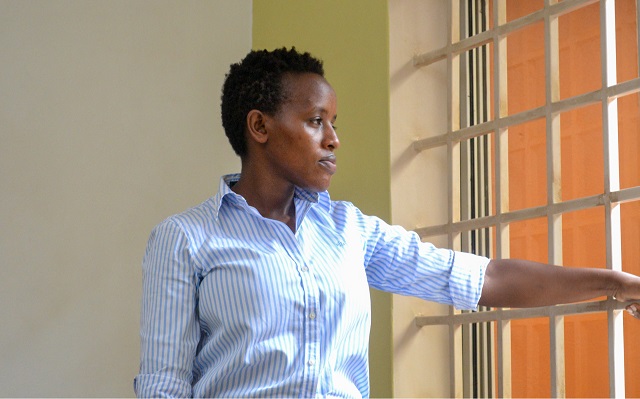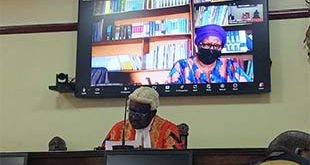
Award-winning journalism activist Agather Atuhaire shares the story of her fears and frustrations as she experiences threats and intimidation first hand
ANALYSIS | APOPHIA AGIRESAASI | Although Uganda’s Constitution guarantees press freedom, it has been deteriorating in recent years with increasing restrictions on media. President Yoweri Kaguta Museveni’s government, which has been in power since 1986, has been accused of regularly cracking down on dissenting voices by arresting journalists and charging them with offenses such as publishing false news. Physical violence against journalists is not uncommon.
The government has also passed several laws that limit media freedom and stifle independent reporting. For example, the Computer Misuse (Amendment) Act of 2022 criminalizes using a computer to publish or share “malicious information” about a person, but it does not define what constitutes “malicious information.”
According to a report by the African Centre for Media Excellence, journalists in Uganda are also poorly paid, which can lead them to compromise their independence, objectivity and credibility.
Despite these challenges, journalists in Uganda bravely report on issues that affect their communities, often at great personal risk. Their experiences serve as a window into the state of press freedom in the country. One journalist, Agather Atuhaire, who has experienced threats and intimidation firsthand, shares her perspective with Global Press Journal.
****
My name is Agather Atuhaire, a freelance journalist. I have worked for print media such as Independent Magazine, Daily Monitor and the National Geographic Magazine. I have also worked with broadcast media such as NBS Television and NTV. At NTV, I was a regular analyst on “Fourth Estate” and later hosted it. Recently, I have been publishing most of my work on Twitter. I realized information reaches more people through social media than other mainstream media.
I started journalism while at university for my first degree. After graduating in 2011, I returned four years later to pursue a law degree. I thought outside journalism, I should study law. Now I feel I can serve my country better through journalism. It has its own frustrations, but when your calling is to make a difference, you realize that the profession can help.
We live in a country that is a hybrid dictatorship. When I was on “Fourth Estate,” I would get trailed. When I started publishing on Twitter, it got worse. Threats on my life increased.
You encounter obstacles while getting information because when sources give you information, they risk their lives and jobs. Even friends in Parliament don’t want to be seen talking to me. They will be suspected of furnishing me with information.
Resources are another obstacle. For example, now I work alone without the backing of an organization. This means most of the work I do is unpaid. No one pays me to publish on social media. Last year, I published information about the Parliament buying luxurious cars for the speaker and deputy speaker, and it created a major backlash for me. I got calls from friends saying government officials were looking for me. They arrested Parliament staff suspected of knowing me and interrogated them, accusing them of providing me with information.
The threats are still ongoing. Recently I posted a story about iron sheets on Twitter, and someone responded that by the time the authorities are done with me, I will not be able to say the word Parliament. Sometimes you don’t know whether these are real threats, but whatever it is, the last year has been intense. You have to watch what you eat, where you’re going and how you’re going. People have to escort you back home if you’re traveling late. It is a bit unsettling to live that way. I have learned to walk on eggshells, to watch over my shoulder.
Like I said, we live in a country that is quite interesting. There are so many power centers. There is lawlessness, and some people think they are above the law. You have a Parliament speaker who can influence the chief of military intelligence to investigate you for a personal reason. You have a prime minister who can do the same.
This kind of experience can change the way you do your work. Sometimes I censor myself. Sometimes I hold on to information until I have evidence. Sometimes I hold on to information to protect my sources. Despite the threats, I convince myself every day that I have played my part.
The future for journalists looks bleak. Press freedom is headed for the worse. Journalists are running away from the profession. Newsrooms need to be independent, so they don’t depend on government adverts.
We also need a more active citizenry that can demand answers when journalists are threatened. One of the people being fronted for the presidency asked a media house why they had deployed journalists to cover the Ukraine war.
We are headed for worse times
For journalists in Uganda, there are some off-limit topics. I have heard that writing about the first lady – who is also the minister of education and sports – is off limits. I know a journalist, Gertrude Tumusiime Uwitware, who was kidnapped. I never talked to her myself, but many say it was because of what she wrote about the first lady. She later fled the country.
People also tread carefully before writing about the first son. In 2013, the police closed the Monitor and Red Pepper newspaper offices because they wrote about the first son, Muhoozi Kainerugaba, being prepared to succeed his father as president. Even the president has recently become less tolerant.
We pretend to have a democracy by having elections, but we all know these elections are not free and fair.
As a result of the censorship, many people have fled journalism. Some journalists have fled the country: Mordecai Muriisa, Remmy Bahati and Gertrude Tumussime Uwitware. Because of limited press freedom, media houses will self-censor. We will have a less informed public. Citizens will not get the right information.
Newsrooms can protect journalists by being independent themselves. They can provide journalists with enough resources to get the right information. Citizens can stand up and demand answers when journalists are threatened.
*****
This interview has been edited and condensed for clarity.
Source: Global Press Journal
 The Independent Uganda: You get the Truth we Pay the Price
The Independent Uganda: You get the Truth we Pay the Price


